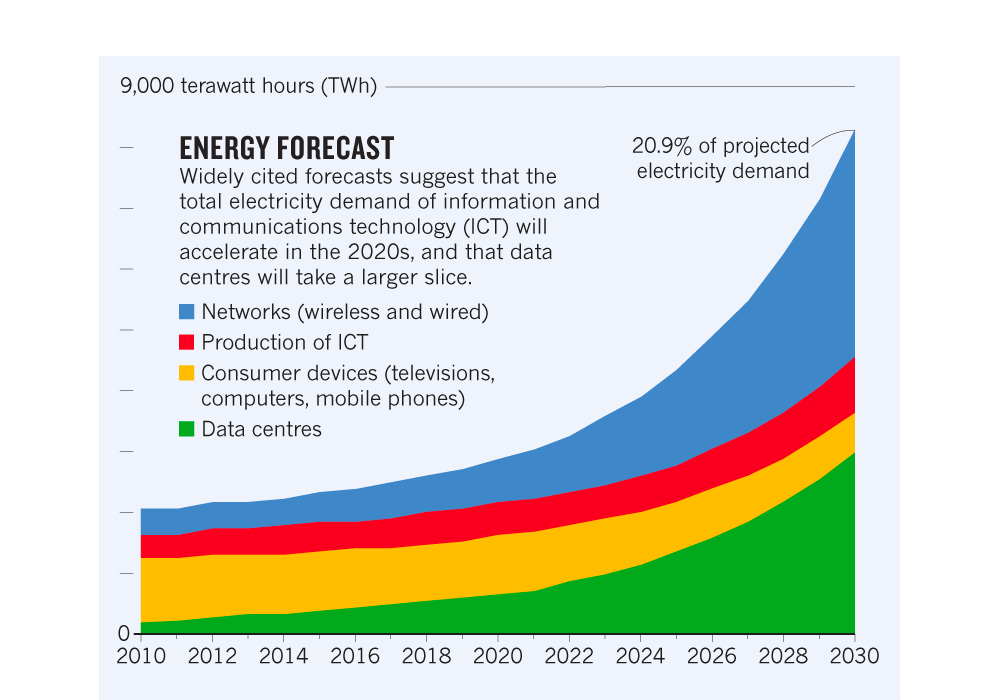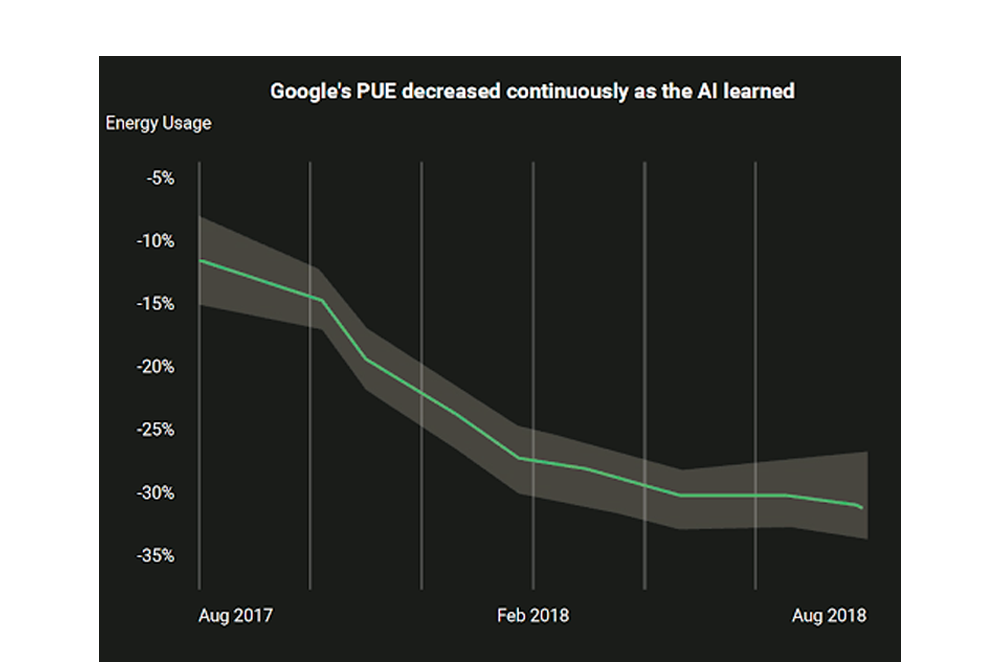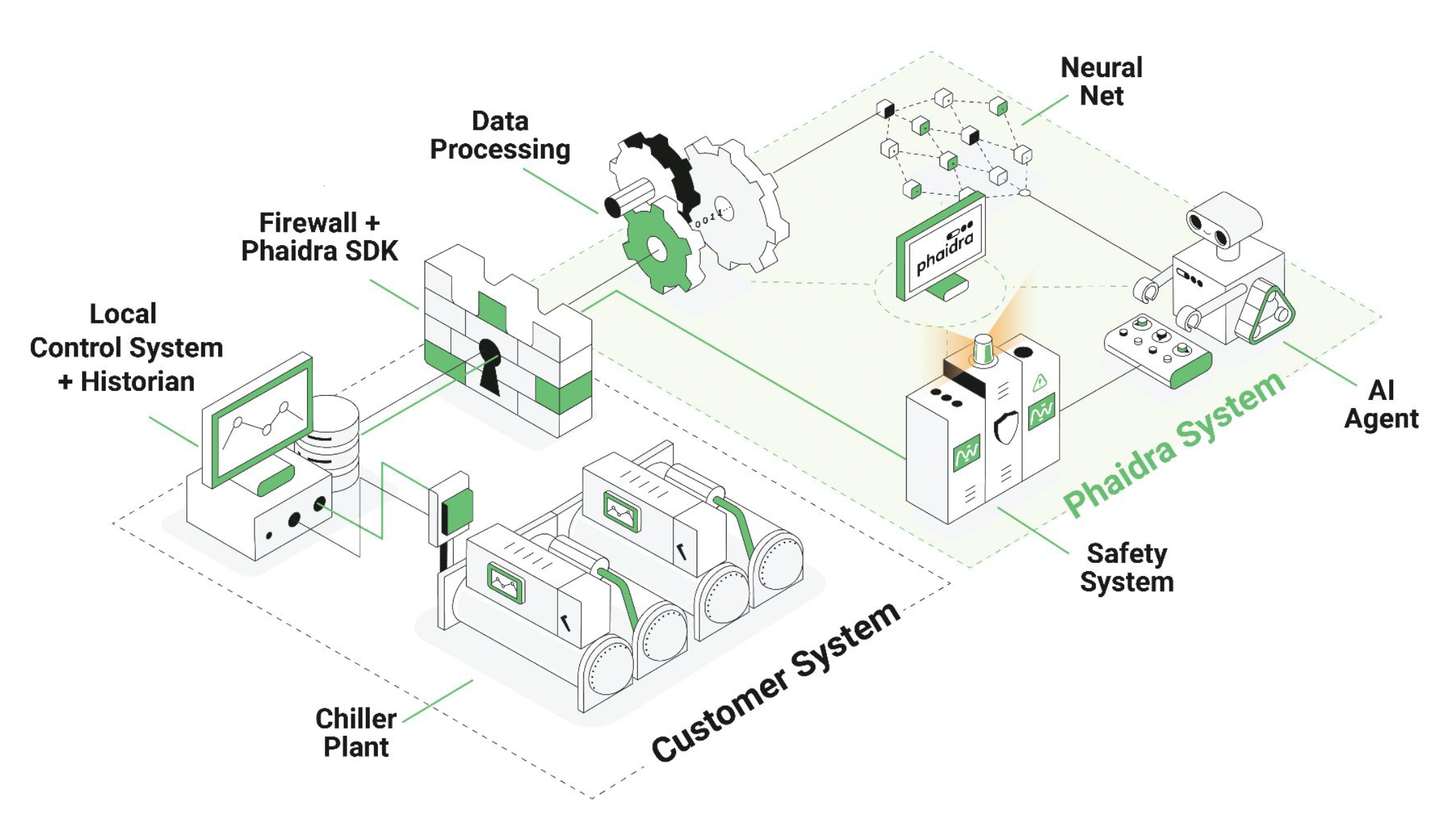AI for a Cooler Earth: Phaidra’s Mission to Combat Data Center Emissions
As computing needs grow exponentially, AI like Phaidra’s is necessary to stem emissions.
Anyone who has ever suffered from laptop burn can appreciate that computing power generates heat.
Just like your laptop, data centers – which contain servers powering everything from Netflix to NASA – also produce heat that must be mitigated to keep those servers functional. Consequently, cooling is one of the largest sources of energy usage in the data center environment.
The Data Center Energy Crisis
In fact, in 2021, data centers around the world consumed roughly the same amount of energy as the United Kingdom – equivalent to approximately 1-2% of global electricity use.
And that energy consumption is only projected to accelerate given the computational tsunami looming on the horizon: artificial intelligence.
This boom is set to double or triple the amount of energy consumed by data centers. For context, this would imply that data centers would be responsible for more electricity demand than any country in the world, except the United States and China.
 Source: AKCP
Source: AKCP
Data centers and distributed computing systems already consume a substantial portion of the world’s total power generation. Without technological innovation, this energy demand and the associated greenhouse gas emissions could increase significantly. Data centers are in a unique energy dilemma, serving as both catalysts for positive change and potential contributors to worsening emissions.
Fortunately, AI has the power to be the cure as well as the cause of this potential energy crisis by offsetting the increasing energy demand of data centers with improved performance at those data centers.
This is why we recently led an investment in Phaidra.
Phaidra’s AI Solution
Phaidra – founded by Veda Pannershevlvam (CTO), one of the pioneers of AlphaGo, Katie Hoffman (President & COO), who led the Trane x Deepmind collaboration, and Jim Gao (CEO), who built the framework at Deepmind that reduced energy usage at Google’s data centers by nearly 40% – is leveraging artificial intelligence to optimize efficiency within data centers and other mission-critical facilities.
 Source: Deepmind
Source: Deepmind
Phaidra isn’t just making recommendations for humans to implement, they are using reinforcement learning – the only branch of machine learning that produces actions, not just predictions – to directly control data center cooling and other functionality, all the while, ensuring the most stringent safeguards are upheld.
Phaidra’s results with their first Fortune 100 pilot customers are staggering. Within one year of implementation, they are able to demonstrate 10-15% energy savings. For context, one company estimated that a 10% energy reduction would equate to $2-3 million in energy savings per facility per year. Customers do not need any sustainability incentives to find Phaidra’s product compelling – the economic benefits are more than sufficient (a prime example of Collab’s Villain Test at work).
This is a massive technological breakthrough. There is no other company in the world capable of autonomously controlling large industrial facilities.
How It Works
Phaidra does this by plugging-in to a facility’s existing system (no new hardware needed), typically via the Building Management System (BMS) or Supervisory Control and Data Acquisition (SCADA) system. This feeds thousands of data points from sensors directly into Phaidra’s AI agent, allowing Alfred (as the team affectionately named it) to identify and implement (in real time) the actions that maximize facility performance — including energy consumption, CO2 emissions, stability, machine run time, and many other variables.

This is radically different from how industrial automation works today.
Industrial facilities, like data centers, rely on hard-coded rules (consisting of thousands of lines of IF/THEN statements) that do not adapt to changing conditions. These explicitly programmed control systems force the physical plant to operate the same way in perpetuity (or until someone hardcodes a new rule) – a suboptimal process that leads to facility degradation. In contrast, Phaidra’s reinforcement learning systems constantly learn and get better over time — leading to continuous performance improvements and an accelerating ROI for Phaidra’s customers.
Moving Beyond Data Centers
Although the opportunity to optimize data centers is more than big enough (both in terms of economic returns and potential climate impact), Phaidra has the potential to move beyond the data center environment.
Their algorithm is a general-purpose framework that could be applied to anything from improving power plant conversion efficiency to helping manufacturing facilities increase throughput.
Large-scale industrial systems have more efficiency gains to capture. As computing needs grow exponentially, AI like Phaidra’s is necessary to stem emissions. Phaidra elegantly deploys AI to optimize itself, illustrating technology’s dual climate promise and peril.